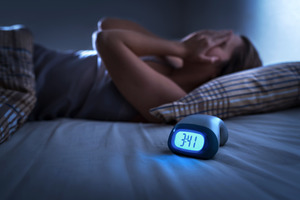No comments yet.
RSS feed for comments on this post.
Sorry, the comment form is closed at this time.

The internet has placed worlds’ worth of information at the average person’s disposal, which can be a bit of a double-edged sword when it comes to medicine. While it’s obviously fantastic that the average person can learn more about their health, much of the advice you’ll find online comes from people who don’t necessarily know what they’re talking about.
For example, you might have heard about the potential health benefits of CBD for those with sleep apnea. To clear the air, here’s what you should know about what the current consensus surrounding CBD and sleep apnea.
You’ve almost certainly heard the term CBD at this point, but even still, you might not quite know what it is. CBD is a chemical derived from the cannabis plant. It is distinct from THC, which is what’s responsible for the high associated with the plant. However, some recent studies suggest that this substance can still dull pain, relieve anxiety, aid sleep, and could offer a host of other health benefits sometimes associated with cannabis.
Some studies have suggested that CBD could help sleep apnea patients to sleep more soundly, mitigating some of the symptoms associated with the condition.
However, CBD is still poorly understood—after all, it’s derived from an illegal substance that was rarely studied in a clinical context until fairly recently. That being the case, it’s not entirely clear what benefits (or hazards) could be associated with using CBD habitually.
Even if CBD itself is safe, many of the supplements that contain it are unregulated and untested. This should give patients pause when considering experimenting with CBD. Think about it— does it seem like a good idea to get your sleep apnea medication from a vape store?
For these reasons, the official position of the American Academy of Sleep Medicine is that CBD is not a suitable treatment for sleep apnea.
If you believe that you have sleep apnea, you should talk to a sleep doctor or dentist for a screening. Once you have a diagnosis, you can make use of CPAP machines or oral appliances to ameliorate your symptoms. These are time-tested, safe methods of treating the condition, ones that you can depend on.
Dr. Sara Saba was drawn to dentistry because of the unique way that it allows her to combine her creativity with science, but the thing that keeps her motivated every single day are the smiles on her patients’ faces when they’re restored to perfect health. Dr. Saba received her dental degree from the University of Maryland at College Park, and since then has constantly worked to gain a more circumspect understanding of her field.
If you have any questions about sleep apnea, we can be reached at our website or by phone at (301) 460-3331.